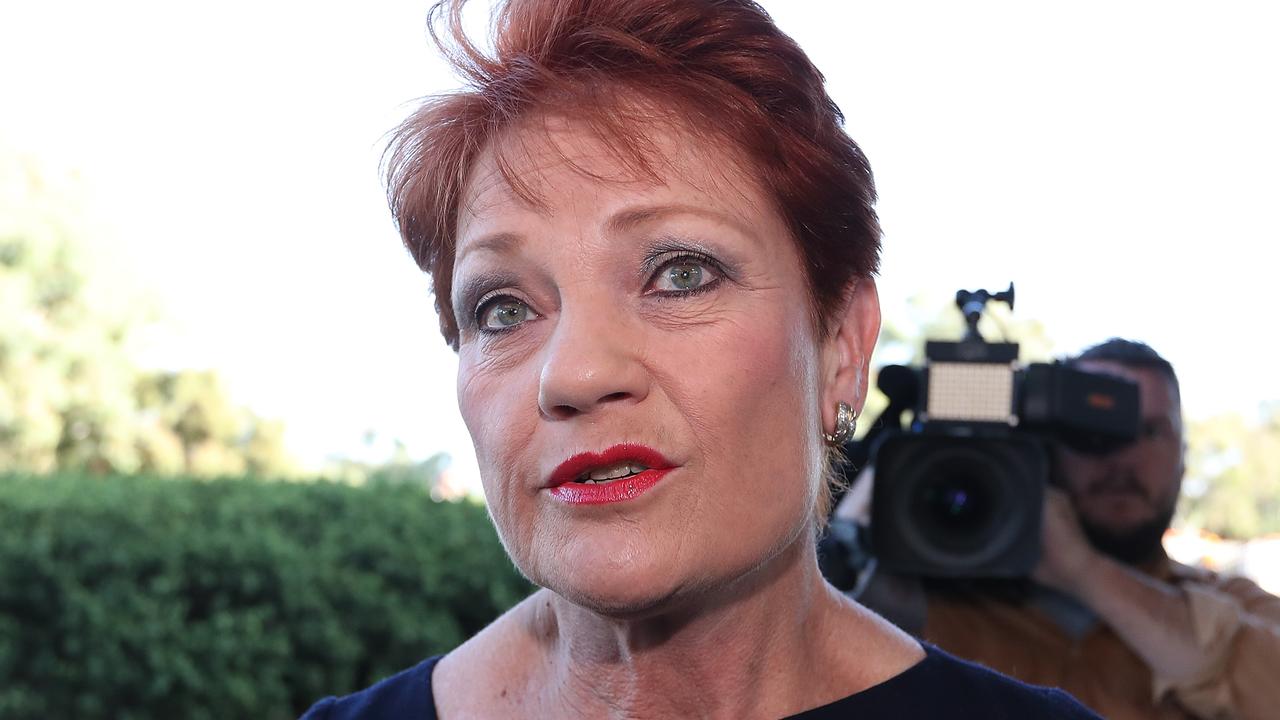Labor, Greens outflanked on revival of TPVs
IMMIGRATION Minister Scott Morrison and Clive Palmer have reached a deal to resurrect Howard-era temporary protection visas.
IMMIGRATION Minister Scott Morrison and Clive Palmer have outflanked Labor and the Greens by reaching a deal to resurrect Howard-era temporary protection visas and introduce a new visa designed to lure refugees to work in regional areas.
The breakthrough hands Mr Morrison a significant political win and fulfils the Coalition’s final election promise on immigration policy — to restore TPVs that offer work rights, Medicare and welfare payments to refugees.
The government will also introduce a new temporary five-year Safe Haven Enterprise Visa aimed at attracting refugees into regional areas with acute labour shortages, which “encourages enterprise through earning and learning’’.
The visas are designed to deal with the backlog of 30,000 asylum-seekers who arrived by boat under Labor and have been in limbo without their refugee claims being processed. The SHEV could offer a pathway to a student or skilled visa and a slim chance of a more permanent foothold in Australia, but Mr Morrison said the bar would be very high.
Refugees would not be eligible for permanent protection visas, Mr Morrison said, because it “guaranteed welfare for life’’.
“TPVs will provide refugees with stability and a chance to get on with their lives while at the same time guaranteeing that people-smugglers do not have permanent protection visa product to sell to those who are travelling illegally to Australia,’’ he said.
“These also do not apply to anyone who seeks to come to Australia now. Anyone who seeks to come to Australia on a boat and is not turned back will find themselves on Nauru or Manus Island.’’
GRAPHIC: Visas - what it means
Importantly, the deal on TPVs gives the government a glimmer of hope that the Palmer United Party is willing to negotiate on key planks of the government’s agenda, including budget measures.
“I think it’s a game-changer for our country,” Mr Palmer said. “It doesn’t have people locked in a ghetto situation with no hope for them or their families.”
Labor will not support the reintroduction of TPVs because they do not offer permanency but has left open the possibility of considering SHEVs.
“At the behest of Clive Palmer it would appear that Scott Morrison has opened up a pathway to citizenship for those who are in Australia,’’ Labor’s immigration spokesman Richard Marles said.
The Greens, however, slammed the new visa class as a “furphy’’ and senator Sarah Hanson-Young said Mr Palmer had “well and truly been played’’.
Human rights lawyer David Manne said the measures would “re-traumatise’’ refugees, while refugee advocate Ian Rintoul expressed outrage on the entire package of legislation, which includes rapid processing of refugee claims, streamlined review arrangements, and reinforces the government’s powers to turn back asylum-seeker boats.
“Neither visa allows for permanent protection, nor for family reunion. Tens of thousands of people found to be refugees will be left as a permanent underclass, deprived of the possibility of residency, citizenship or the possibility of reuniting with their families,’’ Mr Rintoul said.
Mr Morrison’s deal with Mr Palmer delivers the government three of the six Senate crossbench votes it needs to pass the legislation after the previous Labor-Greens-controlled upper house rejected the Coalition’s mandate for TPVs last year.
Family First senator Bob Day is locked in behind the resurrection of TPVs, while senators Nick Xenophon and the Liberal Democratic Party’s David Leyonhjelm are leaning towards supporting the measures.
Independent senator John Madigan will not vote for the moves. The position of Australian Motoring Enthusiast Party’s Ricky Muir is unknown but he is in a voting alliance with PUP.
Mr Morrison said he wanted the backlog of 30,000 people cleared as soon as possible but it could take years.
Unlike Howard-era TPVs, refugees will not have family reunion rights and will not be able to apply for a permanent protection visa at the end of the three years.
“SHEV holders who have worked in regional Australia without requiring access to income support for 3½ years will be able to apply, and if they meet eligibility requirements, be granted other onshore visas, for example a family or skilled visa as well as a temporary skilled and student visa,’’ Mr Morrison said. “However, I stress, they will not be able to apply for a permanent protection visa.’’
Asked if any of them would ever be able to apply for residency, Mr Morrison said: “There are some very high benchmarks that people would have to meet on a Safe Haven Enterprise Visa to potentially, possibly one day make an onshore application for some form of visa which would probably be a temporary visa. Even then, I think it would be a big hurdle to clear.’’
There 1550 people, including 32 unaccompanied minors and 436 children, in mainland and Christmas Island detention centres, who arrived in Australia after July 19 last year when Labor reintroduced offshore processing. As part of the deal, they will not be transferred to Nauru or Manus Island. But new boat arrivals will be processed offshore.



To join the conversation, please log in. Don't have an account? Register
Join the conversation, you are commenting as Logout